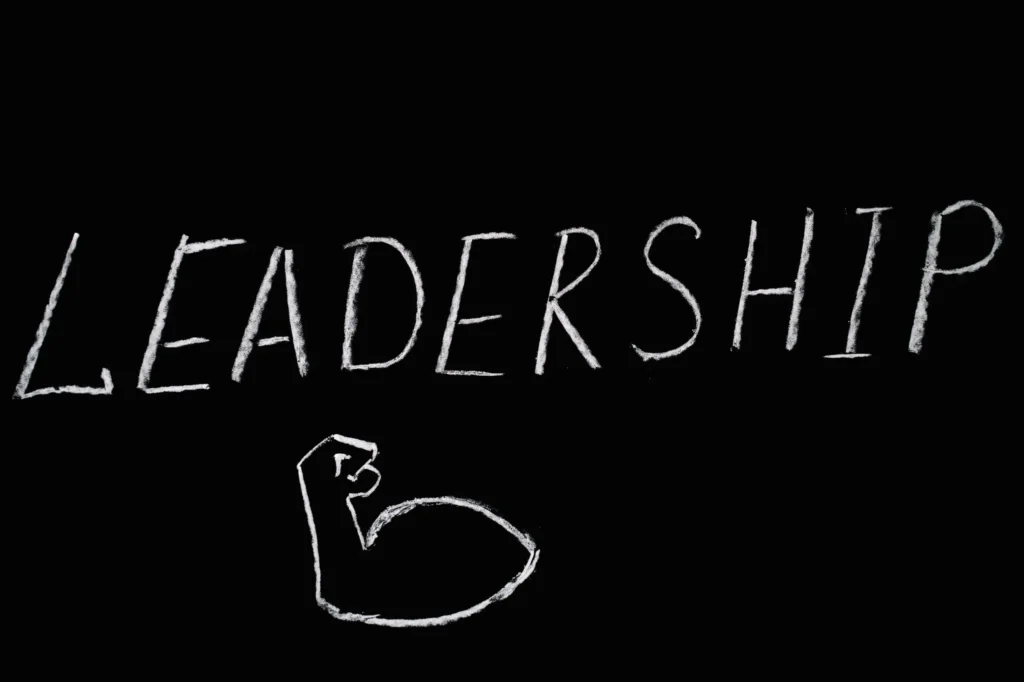Hey there! Ever wondered how to lead when you are not in charge? Impact-Site-Verification: d305401a-66e4-459c-9f6d-bb4bfa9fdbef
You don’t need a title to make an impact. Discover the ultimate strategies to amplify your influence and become the go-to leader your team looks up to, no matter your position.
Understanding Leadership Beyond Authority
In the realm of leadership devoid of traditional authority, grasping the fundamental principles that transcend hierarchical constraints is paramount.
It involves recognizing the transformative power of influence and inspiration, enabling you to unlock your leadership potential in any context. Let’s delve deeper into the key principles that underpin effective leadership without formal authority.
Emphasizing Emotional Intelligence
In the absence of hierarchical power, emotional intelligence assumes a pivotal role in guiding and motivating others.
This crucial skill involves understanding and managing emotions, both your own and those of your team members, to foster an environment of trust and collaboration.
Developing emotional intelligence requires an introspective approach and a keen awareness of the impact of your actions and words on the emotional well-being of those around you.
Cultivating a Shared Vision
A shared vision serves as a unifying force that drives collective efforts toward a common goal.
Despite the absence of a formal leadership position, you can actively contribute to shaping and effectively communicating a compelling vision that resonates with your colleagues.
Cultivating a shared vision demands effective communication, active listening, and the ability to align individual aspirations with collective objectives.
Building Strong Relationships
Establishing authentic and meaningful connections with your peers and superiors is the cornerstone of leading without formal authority.
Genuine relationships founded on mutual respect and trust create a supportive network that amplifies your influence within the organizational framework.
Building and nurturing strong relationships entails active engagement, empathy, and a genuine interest in the growth and well-being of your team members.
Lead When You Are Not In Charge: Strategies for Exerting Positive Influence
Leading without formal authority demands the strategic implementation of various approaches that leverage your influence and impact within the team.
These actionable techniques enable you to navigate intricate team dynamics and drive positive change, even in the absence of an official leadership role.
- Practicing Active Listening:
- Active listening serves as the cornerstone of effective communication and fosters an inclusive and open environment where every team member feels valued and heard.
- It involves attentive listening, empathetic understanding, and the ability to respond thoughtfully to the concerns and ideas expressed by others. How can you cultivate active listening as a core competency to build trust and foster collaborative relationships within your team?
- Demonstrating Initiative and Accountability:
- Demonstrating initiative and accountability entails taking ownership of your tasks and responsibilities, proactively seeking solutions, and displaying a strong sense of commitment to achieving shared objectives.
- It reflects your reliability, competence, and dedication to the team’s success, fostering a culture of accountability and productivity.How can you demonstrate initiative and accountability to inspire and motivate your peers to perform at their best?
- Offering Support and Mentorship:
- Providing guidance and mentorship to your peers fosters a culture of continuous learning and personal development within the team.
- It involves offering constructive feedback, sharing valuable insights, and empowering others to reach their full potential. Effective mentorship encourages a culture of trust, respect, and mutual growth, nurturing a collaborative environment that values individual contributions and collective achievements. How can you establish yourself as a mentor and cultivate a culture of mentorship that enhances the professional development and growth of your team members?
- Encouraging Collaboration and Teamwork:
- Promoting a culture of collaboration and teamwork creates a sense of shared purpose, collective responsibility, and camaraderie within the team.
- It involves fostering an environment where diverse perspectives are valued and collective efforts are celebrated. Effective collaboration encourages innovation, creative problem-solving, and the exchange of ideas, leading to enhanced productivity and a sense of belonging among team members. How can you foster a culture of collaboration and teamwork that harnesses the collective potential of your team and promotes a spirit of camaraderie and mutual support?
Overcoming Challenges and Resistance
Leading without formal authority presents an array of challenges and obstacles that demand resilience, adaptability, and effective conflict resolution skills.
Overcoming resistance and navigating potential roadblocks requires a strategic approach that prioritizes empathy, effective communication, and a proactive mindset.
Let’s delve deeper into the effective strategies for managing challenges and winning over skeptics in your pursuit of impactful, non-hierarchical leadership.
- Addressing Resistance with Empathy:
- Navigating resistance demands a nuanced understanding of the concerns, perspectives, and motivations of your team members.
- It requires an empathetic approach that acknowledges the validity of differing viewpoints and fosters open dialogue and mutual understanding.How can you cultivate empathy as a foundational skill to address resistance and navigate conflicts with compassion and understanding?
- Communicating with Clarity and Conviction:
- Clear and persuasive communication serves as a powerful tool to articulate your ideas, foster trust, and gain the support of your colleagues.
- It involves delivering your message with confidence, conviction, and a keen awareness of the diverse communication styles and preferences within your team.Effective communication fosters transparency, alignment, and a shared understanding of common goals and objectives.How can you refine your communication skills to convey your ideas with clarity, confidence, and persuasive conviction?
- Adapting to Dynamic Environments:
- Navigating through dynamic work environments requires adaptability, resilience, and a proactive approach to change management.
- It involves embracing change as an opportunity for growth, learning, and innovation and cultivating a mindset that prioritizes continuous learning and development. Adapting to dynamic environments demands agility, flexibility, and a willingness to embrace new perspectives and strategies to overcome challenges and capitalize on emerging opportunities. How can you cultivate adaptability as a core competency to thrive in dynamic work environments and inspire your team to embrace change with confidence and resilience?
Conclusion
Leading without formal authority necessitates a multifaceted approach that emphasizes emotional intelligence, strong relationships, and strategic leadership strategies.
By leveraging the power of emotional intelligence, fostering authentic connections, and employing effective leadership techniques, you can make a significant and lasting impact within your organization, irrespective of your official title.
The key lies in recognizing that leadership transcends job titles and organizational hierarchies and centers on the influence and positive impact you have on those around you.
Embrace these strategies, cultivate your leadership potential, and embark on a transformative journey to become a catalyst for change and growth within your team and organization.
FAQ
How can I develop my leadership skills without a formal position?
Fostering strong relationships, practicing active listening, and demonstrating accountability can help you develop your leadership skills. Seek mentorship opportunities and actively participate in collaborative projects to gain valuable experience.
What are the key traits of an effective non-hierarchical leader?
An effective non-hierarchical leader possesses strong emotional intelligence, excellent communication skills, adaptability, and a collaborative mindset. They prioritize empathy, foster a sense of belonging, and inspire others through their actions and words.
How do you overcome resistance when leading without authority?
Overcoming resistance without formal authority requires empathy, clear communication, and a proactive approach. Understand the concerns of your team members, communicate with conviction, and adapt your strategies to address their perspectives and concerns.
What role does emotional intelligence play in leading without formal authority?
Emotional intelligence is crucial in leading without formal authority, as it enables you to understand and manage emotions effectively. It helps you build trust, navigate conflicts with empathy, and foster a positive and collaborative work environment.
How can one cultivate a shared vision among team members without a leadership title?
Cultivating a shared vision involves effective communication, active listening, and aligning individual aspirations with collective objectives. Encourage open dialogue, value diverse perspectives, and articulate a compelling vision that resonates with the team’s aspirations and goals.
“Leadership is not about being in charge. It’s about taking care of those in your charge.”
Simon Sinek
Reference
- How to Lead When You’re Not In Charge by Clay Scroggins and Andy Stanley



